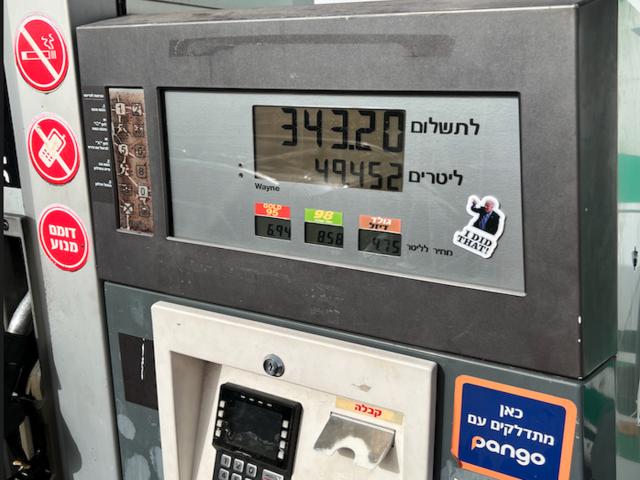Since the onset of 2024, Israel has witnessed a significant hike in the cost of gasoline, particularly the 95 octane variety, which has seen a cumulative increase of NIS 0.78 per liter. According to the Ministry of Energy and Infrastructure, as we step into April, there will be a further increment of NIS 0.21 per liter, setting the new maximum price at self-service pumps to NIS 7.72. This adjustment elevates the price of gasoline to its highest point since the peak of NIS 8.08 in July 2022, a spike attributed to the geopolitical tensions resulting from the Russia-Ukraine conflict.
This upward trend in gasoline prices is influenced by a complex interplay of factors, including the escalating prices of oil on the global stage and fluctuations in the shekel-dollar exchange rate. A notable policy shift contributing to this increase is the decision by the Minister of Finance, Bezalel Smotrich, to reinstate the full level of excise tax on fuel. This move comes after a period spanning from April 2022 to the end of 2023, during which the Ministry of Finance had implemented a reduction in excise taxes, aiming to maintain the price of 95 octane gasoline under NIS 7 per liter. This fiscal measure was part of broader efforts to stabilize fuel prices but resulted in the state foregoing over NIS 1 billion in revenue. The decision to revoke the excise tax reduction aligns with adjustments in the 2024 state budget, reflecting a shift in fiscal policy to recuperate lost revenues.
עליית מחירים נוספת לצרכנים (ומכה נוספת לאינפלציה)
— תשואת יתר - Tsuat Yeter (@TsuatYeter) March 31, 2024
החל מחצות יעלו מחירי הדלק ב-21 אגורות בתחנות בשירות עצמי, וב-22 אגורות בתחנות בשירות מלא
מחיר הדלק יעמוד על 7.72 שקלים לליטר.https://t.co/dwJZKVbLGn
The global oil market is currently on the brink of crossing the $100 per barrel mark, a development observed with keen interest by economic analysts. Projections suggest that oil prices may surpass this milestone within the year, contributing to a broader pattern of global inflation. This inflationary pressure is directly linked to rising gasoline prices, which, in turn, influence consumer prices. For instance, a notable increase in consumer prices by 0.6% in August was majorly attributed to the gasoline price hike, with the average price per gallon reaching $3.87, marking a 20 cents increase from the previous year, as reported by AAA.
Moreover, the surge in oil prices has had a ripple effect on diesel costs, thereby affecting the pricing of various goods due to increased shipping expenses. This situation poses a potential threat of further inflating inflation rates, potentially prompting continued interest rate hikes by the Federal Reserve throughout 2024. Nonetheless, there is a perspective among some analysts that the inflationary impact of rising oil prices might begin to wane towards the year's end as the supply-demand dynamics start to realign.
This could get interesting. https://t.co/Y8mitYdcmE
— Pecos Bill (@PecosBill274536) March 28, 2024
This intricate scenario underscores the interconnection between global economic policies, market dynamics, and geopolitical events, illustrating how these factors converge to shape the economic landscape in Israel and beyond. The adjustments in fuel excise tax, coupled with the volatile oil market, reflect broader economic challenges and strategic decisions that have immediate implications for consumers and the overall economy.


